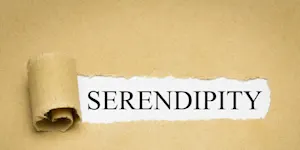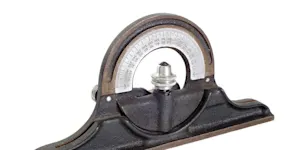What Makes This Word Tick
"Fabricate" is a curious word that straddles the line between creativity and deception. On one hand, it can mean constructing or creating something, like when a master carpenter fabricates a stunning piece of furniture. On the flip side, it also carries the less noble meaning of inventing falsehoods or concocting a story. Either way, it's all about making something from scratch!
If Fabricate Were a Person…
This word would be a crafty artisan, skilled with hands, yet with a penchant for storytelling that leaves you questioning what's genuine. Fabricate has a creative mind and a vivid imagination, sometimes spinning tales just to see if anyone really notices.
How This Word Has Changed Over Time
Originally stemming from the Latin "fabricatus," meaning “to make, build,” fabricate's roots were solidly grounded in craftsmanship. Over the centuries, its usage shifted, including the less tangible realm of deception, reflecting humanity's creative—yet sometimes misleading—nature.
Old Sayings and Proverbs That Use Fabricate
Though not commonly found in proverbs, one might draw inspiration from sayings like "spinning yarns," where spinning hints at fabrication in weaving and storytelling alike. Just remember: not all fabrications are woven with honesty.
Surprising Facts About Fabricate
Fabricate isn't just a linguistic tool; it's also a cornerstone in manufacturing, especially with modern technologies like 3D printing, where complex designs are fabricated using advanced machinery. In the world of media, fabricating stories can lead to scandal or satire, depending on the intent!
Out and About With This Word
In the world of manufacturing, "fabrication" is a buzzword, referring to the act of constructing industrial products. You might encounter it when discussing anything from the assembly of electronic components to the creation of elaborate theatrical props.
Pop Culture Moments Where Fabricate Was Used
The word often pops up in crime dramas where someone has "fabricated" an alibi. In classic detective novels, suspense hinges on these fabrications unraveling, leading to thrilling revelations just like in a good episode of "Murder, She Wrote."
The Word in Literature
Authors adore characters who fabricate, whether it’s an inventor who fabricates world-changing devices or an unreliable narrator spinning unlikely tales. Charles Dickens, for instance, created characters woven with both truth and fabrication, highlighting the complexities of human nature.
Moments in History with Fabricate
The art of fabrication has been pivotal through history—in ancient times, blacksmiths fabricated weapons crucial for protection and conquest. More controversially, the historical fabrications of events or documents have altered perceptions and fates, like the infamous "Donation of Constantine."
This Word Around the World
In French, you might hear “fabriquer,” similar to our "fabricate," used in the everyday sense of making or manufacturing something. In other languages, the dichotomy remains, with terms for creating and deceit often branching from the same root.
Where Does It Come From?
“Fabricate” has Latin origins from “fabricatus,” the past participle of “fabricare,” which means to make or construct. This shares a connection with "faber," a Latin term referring to a worker or smith, indicating its deep connection to crafting and building.
How People Misuse This Word
People often mistakenly use "fabricate" solely in the context of deception, ignoring its constructive connotations. It’s not just about falsehoods; it's about the broader spectrum of creating, both real and imaginary.
Words It’s Often Confused With
Build: Seen as purely constructive, lacking the deceptive edge of "fabricate."
Concoct: Implies creation but often leans more towards schemes or plans than physical constructs.
Invent: Focuses on bringing something into existence but without the negative connotations associated with deceit.
Additional Synonyms and Antonyms
Synonyms include create, manufacture, and contrive, while antonyms might be destroy or dismantle, reflecting the constructive versus destructive duality.
Want to Try It Out in a Sentence?
When you fabricate a story for the grandkids about where cookies come from, you might just become the next whimsical family legend—truth be told, some fabrications are sweeter than others!
















